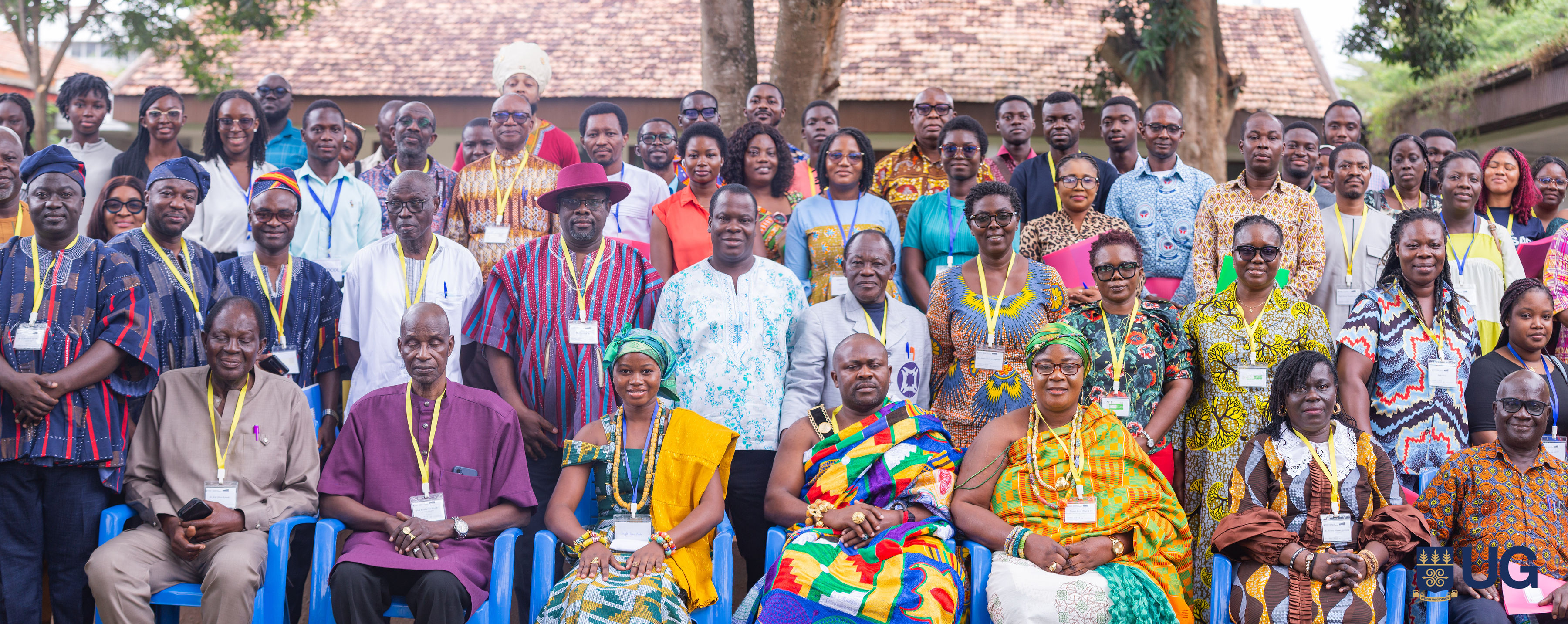School of Social Sciences Workshop Explores Integration of African Indigenous Knowledge in Education

The School of Social Sciences at the University of Ghana, in partnership with Memorial University of Newfoundland, Canada, has hosted a thought-provoking workshop to examine how the critical teachings of African indigenous elders can help transform education systems across the continent.
The workshop brought together traditional leaders, educators, and researchers to explore practical ways of integrating indigenous knowledge, expressed through folklore, proverbs, storytelling, artistic expressions, and cultural practices, into academic curricula.
Delivering the keynote address on the theme “Inclusivity in Diversity,” Prof. Kwaku Osei-Hwedie, Professor of Governance and Leadership, underscored the shortcomings of relying solely on Western educational models. “In the African or Ghanaian context, it is evident that gaps in social work education based on Western models do not work,” he said, calling for a synchronisation between Western and indigenous approaches to education.
The Dean of the School of Social Sciences, Prof. Mavis Dako-Gyeke, also stressed the need for a paradigm shift in education delivery.
“As educators, we seek new educational pathways; however, our vital sources of wisdom, the voices, knowledge, and lived experiences of Indigenous African Elders, have been consistently overlooked,” she noted.
A six-member panel of University of Ghana academics, moderated by Prof. Paul Banahene Adjei of Memorial University, discussed conceptualising African Indigenous Elders’ Critical Teachings and their role in developing critical thinking for equity and human rights education.
Breakout sessions, led by Dr. Ophelia Affreh and historian Nana Safo-Kantanka Osei-Bonsu, highlighted language preservation as a crucial component of educational reform.
The workshop concluded with a strong emphasis on intentional policy development at all levels of education. It also clarified that integrating indigenous knowledge does not mean rejecting Western approaches entirely but promoting a balanced implementation of the best elements from both systems.